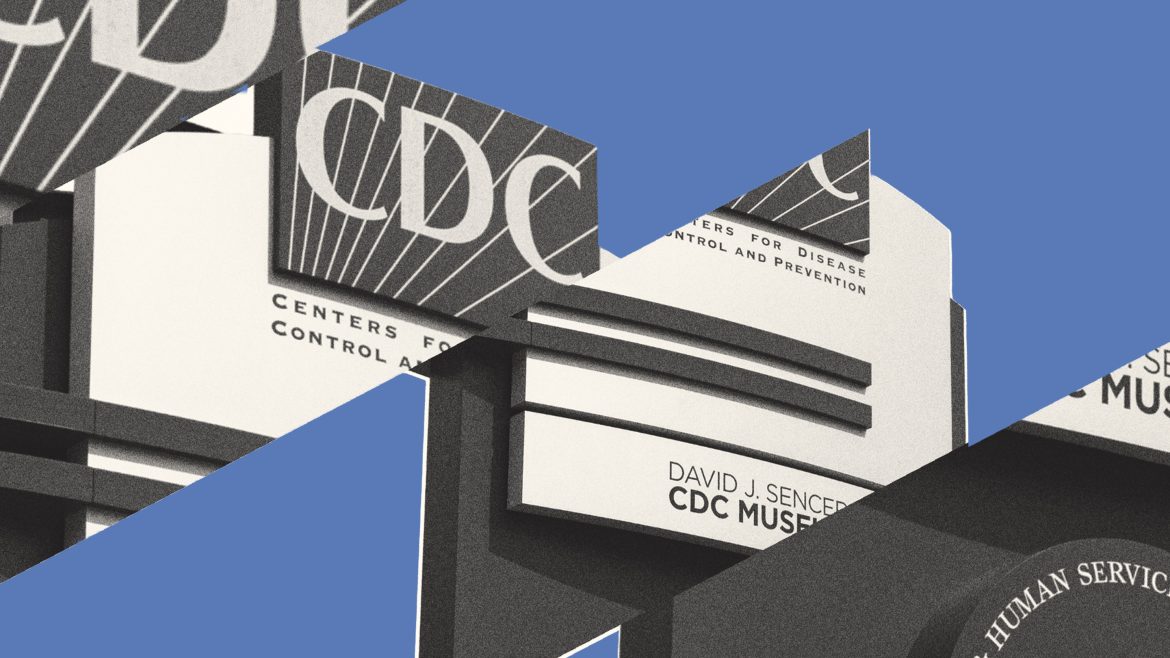It was a strange weekend for employees of the Centers for Disease Control and Prevention, to say the least. On Friday, hundreds of workers at the agency, many of whom have been furloughed since the federal government shut down on October 1, found out they were being fired as part of widespread layoffs across federal agencies. Less than a day later, a curt follow-up email landed in many of their inboxes informing them that they weren’t being let go after all. No explanation, no apology.
Staffers spent the weekend trading calls and texts, trying to piece together who had been axed, who had been spared, and, most puzzling, why. “There’s really no strategy that they’re using, no real approach—at least any thoughtful approach—to how they are doing these cuts,” Daniel Jernigan, who directed the National Center for Emerging and Zoonotic Infectious Diseases before he resigned in August, told me.
I spoke with a half dozen current and former CDC officials, and foremost on their mind was what they described as the ineptitude of the botched downsizing. For example, almost all editors of the Morbidity and Mortality Weekly Report, which the CDC has published since 1960, were among those notified on Friday night that their work was “unnecessary or virtually identical to duties being performed elsewhere in the agency.” By Saturday, several CDC sources told me, they had their jobs back.
Andrew Nixon, the communications director for Health and Human Services, wrote in an email that “the employees who received incorrect notifications were never separated from the agency and have all been notified that they are not subject to the reduction in force.” He declined to answer specific questions about layoffs.
Many of the cuts that have stuck so far seem to conflict with the administration’s stated aims. A branch of the National Center for Health Statistics that coordinates an annual survey of the dietary habits of Americans—a topic presumably of interest to those attempting to make America healthy again—was eliminated, according to its former chief, David Woodwell. Secretary of Health and Human Services Robert F. Kennedy Jr. has accused the agency’s vaccine-advisory board of being “plagued with persistent conflicts of interest” and insisted that such conflicts must be eliminated in order to restore Americans’ trust in the CDC. And yet, the agency’s human-resources office—which handled ethics issues—has been scrapped, according to Alt CDC, a team of anonymous public health officials that has been crowdsourcing updates on the firings. “I would think, if you are monitoring for conflicts of interest, particularly when you’ve accused the agency of having them, you would want to have an office to do that,” Debra Houry, who was the CDC’s chief medical officer until she resigned in August, told me.
One veteran researcher who still has his job (and, like other public-health workers I spoke with for this story, requested anonymity for fear of losing it) told me he believes that Kennedy’s ultimate goal is to “silence the scientific voice of career CDC scientists.” And indeed, perhaps the clearest result of the firings is that they appear to consolidate Kennedy’s power over the agency. Every member of the CDC’s Washington office, which serves as a conduit between the agency’s Atlanta headquarters and Capitol Hill, was fired; barring a second round of reversals, that office appears to be closed. The person managing Alt CDC’s Bluesky feed yesterday, who identified herself as an epidemiologist in a state health department, told me she’d heard that CDC personnel who normally share information with state officials during outbreaks have been eliminated. “So the only contact they have is going to HHS—is going to RFK,” the epidemiologist told me.
For CDC scientists who received layoff notices, the past few days have been disorienting. I spoke with one longtime scientist at the agency who learned on Friday that she would lose her job but then, on Saturday, received an email with the subject line “Rescission of Previous Notice of Reduction in Force.” In other words, her job—deemed redundant the day before—was again apparently necessary. She told me that her short-lived firing “felt like the culmination of eight months of abuse” under the Trump administration. She was particularly distressed by Kennedy’s June decision to fire the entire vaccine-advisory board and stack it with his allies, but recent months have offered even more opportunities for stress and indignation. In August, a gunman who blamed COVID vaccines for his depression opened fire on the agency’s Atlanta campus, killing a police officer. (The veteran scientist told me she shopped online for a bulletproof vest to wear to work, though she ended up not buying one.) Weeks later, Kennedy pushed out the agency’s newly confirmed director, Susan Monarez. Three top CDC officials—Houry, Jernigan, and Demetre Daskalakis, the former director of the National Center for Immunization and Respiratory Diseases—subsequently resigned in protest.
[Read: ‘It feels like the CDC is over’]
On Friday, hours before layoff notices went out, Jim O’Neill, who took over as acting CDC director after Monarez’s ouster, posted two photos on X of what appeared to be a bald eagle soaring over the Capitol building. His message: “Good morning we are going to win.” For the people I spoke with who remain at CDC, what exactly the acting director hopes to win—and for whom—isn’t clear, in part because they haven’t heard anything else from O’Neill. On Friday, instead of discussing the growing turmoil at the agency he oversees, Kennedy posted on X congratulating President Trump for his new drug-pricing deal and defending comments he made at a recent Cabinet meeting linking autism with the use of Tylenol after circumcision. As of this evening, he still hadn’t addressed the firing about-face.

